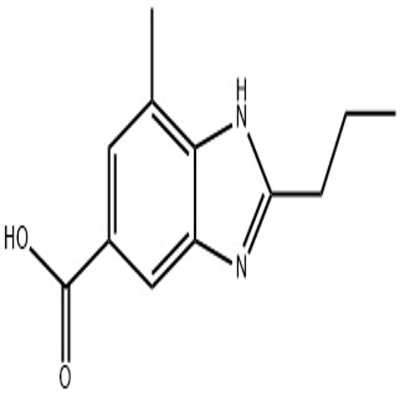-
Categories
-
Pharmaceutical Intermediates
-
Active Pharmaceutical Ingredients
-
Food Additives
- Industrial Coatings
- Agrochemicals
- Dyes and Pigments
- Surfactant
- Flavors and Fragrances
- Chemical Reagents
- Catalyst and Auxiliary
- Natural Products
- Inorganic Chemistry
-
Organic Chemistry
-
Biochemical Engineering
- Analytical Chemistry
-
Cosmetic Ingredient
- Water Treatment Chemical
-
Pharmaceutical Intermediates
Promotion
ECHEMI Mall
Wholesale
Weekly Price
Exhibition
News
-
Trade Service
Thiophene-2-sulfonyl acetonitrile (TSA) is a common sulfur-containing organic compound that has a wide range of applications in the chemical industry.
It is widely used as an intermediate in the production of various chemicals and drugs.
One of the most important applications of TSA is in the production of dyes and pigments.
TSA can be converted into a variety of organic compounds, including azo dyes and hydroxyazo dyes, which are widely used in the textile industry for coloring fabrics.
These dyes are known for their excellent colorfastness and resistance to light and heat.
Another application of TSA is in the production of drugs and pharmaceuticals.
TSA can be converted into a variety of drugs, including antibiotics, anti-inflammatory drugs, and anti-cancer drugs.
These drugs are widely used to treat a range of medical conditions, including bacterial infections, arthritis, and cancer.
TSA is also used in the production of polymers and plastics.
It can be converted into a variety of polymers, including polyurethanes and polyester resins, which are widely used in the manufacture of plastics and synthetic fibers.
These polymers are known for their excellent mechanical properties and resistance to heat and chemicals.
In addition to its applications in the chemical industry, TSA is also used in the production of electronics and electrical components.
It can be used as an intermediate in the production of various electronics, including transistors, capacitors, and resistors.
These electronics are widely used in a range of applications, including computers, mobile phones, and televisions.
TSA is also used in the production of cosmetics and personal care products.
It can be converted into a variety of compounds, including surfactants and emulsifiers, which are widely used in the formulation of cosmetics and personal care products.
Despite its wide range of applications, TSA is also known to have some potential health hazards.
Prolonged exposure to TSA can lead to skin irritation, respiratory problems, and other health issues.
Therefore, it is important to handle TSA with caution and follow all safety guidelines to minimize the risk of exposure.
In conclusion, Thiophene-2-sulfonyl acetonitrile (TSA) is a versatile organic compound that has a wide range of applications in the chemical industry.
It is widely used as an intermediate in the production of dyes and pigments, drugs and pharmaceuticals, polymers and plastics, electronics and electrical components, and cosmetics and personal care products.
However, it is important to handle TSA with caution and follow all safety guidelines to minimize the risk of exposure.





![benzyl N-{2-[4-(4,4,5,5-tetramethyl-1,3,2-dioxaborolan-2-yl)phenyl]ethyl}carbamate](https://file.echemi.com/fileManage/upload/goodpicture/20210823/m20210823171124543.jpg)

